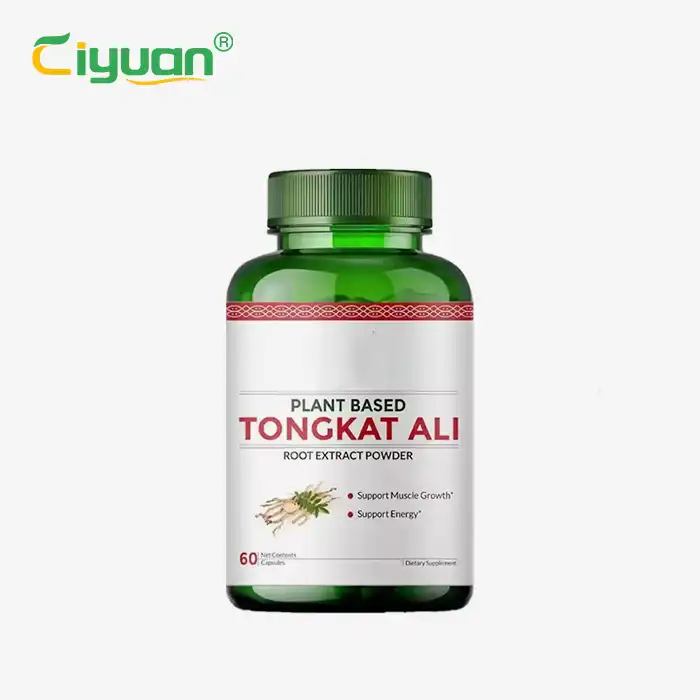How Grape Seed Pills Boost Antioxidant Levels?
 2025-06-16 15:07:41
2025-06-16 15:07:41
What are grape seed pills?
![]()
In today's fast-paced world, maintaining optimal health requires more than just a balanced diet and regular exercise. The increasing exposure to environmental toxins, stress, and processed foods creates an urgent need for powerful antioxidant support. Grape seed pills have emerged as one of nature's most potent weapons against oxidative stress, offering a concentrated dose of proanthocyanidins and other flavonoids that significantly elevate the body's antioxidant defense systems. These remarkable supplements work by neutralizing harmful free radicals, protecting cellular structures, and supporting overall wellness through their exceptional bioavailability and proven therapeutic properties.
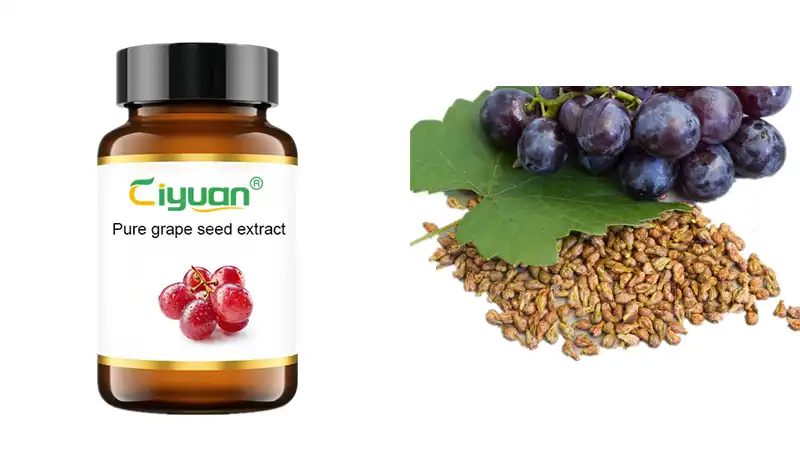
The Science Behind Grape Seed Antioxidant Power
![]()
Understanding Proanthocyanidins and Their Cellular Impact
Grape seed pills contain exceptionally high concentrations of proanthocyanidins, which are oligomeric proanthocyanidin complexes (OPCs) that demonstrate remarkable antioxidant activity. These powerful compounds possess the unique ability to cross the blood-brain barrier and provide protection at the cellular level throughout the body. Research indicates that proanthocyanidins in grape seed pills are approximately 20 times more potent than vitamin C and 50 times more effective than vitamin E in neutralizing free radicals. The molecular structure of these compounds allows them to chelate metal ions, preventing the formation of reactive oxygen species that can damage DNA, proteins, and lipid membranes. When consumed regularly, grape seed pills help maintain cellular integrity by supporting the body's natural antioxidant enzyme systems, including glutathione peroxidase, catalase, and superoxide dismutase, creating a comprehensive defense network against oxidative damage.
Bioavailability and Absorption Mechanisms
The effectiveness of grape seed pills largely depends on their bioavailability and how efficiently the body can absorb and utilize their active compounds. Unlike many other antioxidant supplements, grape seed extract demonstrates superior absorption rates due to its unique molecular composition. The proanthocyanidins in grape seed pills are readily absorbed through the intestinal wall and rapidly distributed throughout the circulatory system, reaching peak plasma concentrations within 30-60 minutes of consumption. This enhanced bioavailability is attributed to the low molecular weight of certain proanthocyanidin fractions, which facilitate their passage through cellular membranes. Furthermore, grape seed pills undergo minimal first-pass metabolism in the liver, ensuring that a significant portion of the active compounds reaches target tissues unchanged. The sustained release of antioxidants from grape seed pills provides prolonged protection, with measurable increases in plasma antioxidant capacity lasting up to 6 hours post-consumption.
Synergistic Effects with Endogenous Antioxidant Systems
Grape seed pills work in harmony with the body's natural antioxidant defense mechanisms, creating a synergistic effect that amplifies overall antioxidant capacity. These supplements enhance the recycling of endogenous antioxidants such as vitamin C and vitamin E, preventing their depletion during periods of high oxidative stress. The flavonoids in grape seed pills also stimulate the expression of antioxidant enzymes through the activation of the Nrf2 pathway, a crucial cellular signaling mechanism that regulates the production of protective proteins. This upregulation of antioxidant enzyme activity creates a multiplier effect, where the benefits of grape seed pills extend far beyond their direct free radical scavenging properties. Additionally, grape seed pills help maintain optimal levels of reduced glutathione, often called the body's master antioxidant, by supporting the enzymes responsible for its regeneration. This comprehensive approach to antioxidant support makes grape seed pills particularly effective in combating chronic oxidative stress and age-related cellular damage.
Mechanisms of Antioxidant Enhancement in Human Physiology
![]()
Cardiovascular Protection and Vascular Health
Grape seed pills provide exceptional cardiovascular benefits through their potent antioxidant properties, particularly in protecting blood vessels from oxidative damage. The proanthocyanidins in grape seed pills strengthen capillary walls by stabilizing collagen and elastin fibers, reducing vascular permeability and improving overall circulatory function. These compounds demonstrate remarkable ability to prevent low-density lipoprotein (LDL) cholesterol oxidation, a critical step in atherosclerotic plaque formation. Regular consumption of grape seed pills has been shown to improve endothelial function by enhancing nitric oxide bioavailability, leading to better vasodilation and blood flow regulation. The antioxidant activity of grape seed pills also helps reduce inflammatory markers such as C-reactive protein and interleukin-6, which are associated with cardiovascular disease risk. Clinical studies demonstrate that individuals taking grape seed pills experience significant improvements in blood pressure regulation, arterial stiffness, and overall cardiovascular risk profiles, making these supplements invaluable for heart health maintenance.
Neuroprotective Effects and Cognitive Function
The antioxidant compounds in grape seed pills readily cross the blood-brain barrier, providing direct neuroprotective benefits that support cognitive function and brain health. These powerful antioxidants help prevent neuronal damage caused by oxidative stress, which is implicated in neurodegenerative diseases such as Alzheimer's and Parkinson's disease. Grape seed pills enhance brain antioxidant capacity by increasing the activity of key enzymes like catalase and glutathione peroxidase in neural tissues. The proanthocyanidins in grape seed pills also protect against amyloid-beta protein aggregation, a hallmark of Alzheimer's disease pathology. Furthermore, these supplements support healthy neurotransmitter function by protecting dopaminergic and cholinergic neurons from oxidative damage. Research indicates that regular consumption of grape seed pills may improve memory formation, enhance learning capacity, and support overall cognitive performance throughout the aging process. The neuroprotective effects extend to protecting against stroke-induced brain damage and supporting recovery from traumatic brain injuries.
Skin Health and Anti-Aging Properties
Grape seed pills offer remarkable benefits for skin health through their ability to protect against UV-induced oxidative stress and support collagen synthesis. The potent antioxidants in grape seed pills help prevent the breakdown of collagen and elastin fibers, maintaining skin elasticity and reducing the appearance of fine lines and wrinkles. These supplements provide photoprotective effects by neutralizing free radicals generated by UV radiation exposure, effectively reducing the risk of premature skin aging and sun damage. Grape seed pills also support wound healing processes by promoting healthy blood circulation to skin tissues and enhancing the regeneration of damaged cells. The anti-inflammatory properties of grape seed extract help reduce skin irritation and redness while supporting the skin's natural barrier function. Clinical studies demonstrate that individuals taking grape seed pills experience improved skin hydration, increased collagen density, and enhanced overall skin appearance. The systemic antioxidant effects of grape seed pills also help protect against environmental pollutants and toxins that can accelerate skin aging and contribute to various dermatological conditions.
Optimizing Antioxidant Benefits Through Proper Supplementation
Dosage Guidelines and Timing Considerations
Achieving optimal antioxidant benefits from grape seed pills requires careful attention to dosage and timing of supplementation. Research suggests that effective antioxidant enhancement typically occurs with daily doses ranging from 100-300mg of standardized grape seed extract, depending on individual health status and specific therapeutic goals. For general antioxidant support, grape seed pills should be taken with meals to enhance absorption and minimize potential gastrointestinal irritation. The timing of supplementation can significantly impact bioavailability, with studies indicating that taking grape seed pills with foods containing healthy fats improves the absorption of fat-soluble antioxidant compounds. Dividing the daily dose into two separate administrations, morning and evening, helps maintain consistent plasma antioxidant levels throughout the day. For individuals with specific health concerns or higher oxidative stress levels, healthcare providers may recommend higher doses of grape seed pills, always within established safety parameters. The standardization of proanthocyanidin content is crucial when selecting grape seed pills, as products should contain at least 95% proanthocyanidins to ensure therapeutic efficacy.
Quality Standards and Manufacturing Excellence
The antioxidant potency of grape seed pills depends heavily on manufacturing quality and adherence to strict production standards. Premium grape seed pills are produced using advanced extraction methods that preserve the delicate structure of proanthocyanidins while removing potentially harmful compounds. GMP-certified facilities ensure that grape seed pills meet international quality standards for purity, potency, and safety. Rigorous testing protocols, including heavy metal analysis, pesticide screening, and microbial contamination testing, guarantee that grape seed pills are free from contaminants that could compromise their antioxidant benefits. The extraction process used in high-quality grape seed pills employs water-ethanol extraction methods that maintain the biological activity of key compounds while avoiding harsh chemical solvents. Third-party laboratory verification of proanthocyanidin content ensures that grape seed pills deliver consistent antioxidant potency across different batches. Additionally, proper packaging in light-resistant, moisture-proof containers helps preserve the stability and effectiveness of grape seed pills throughout their shelf life.
Synergistic Supplementation Strategies
Maximizing the antioxidant benefits of grape seed pills can be achieved through strategic combination with complementary nutrients and compounds. Vitamin C works synergistically with grape seed pills by helping to regenerate oxidized proanthocyanidins, extending their antioxidant activity and enhancing overall effectiveness. Combining grape seed pills with vitamin E creates a powerful antioxidant network that protects both water-soluble and fat-soluble cellular components from oxidative damage. Quercetin, another potent flavonoid, works alongside grape seed pills to enhance anti-inflammatory effects and provide additional cardiovascular protection. Omega-3 fatty acids complement grape seed pills by supporting cellular membrane integrity and enhancing the absorption of fat-soluble antioxidants. Selenium and zinc serve as cofactors for antioxidant enzymes and work synergistically with grape seed pills to optimize the body's natural defense systems. When designing a comprehensive antioxidant protocol, grape seed pills serve as the foundation, with other nutrients providing targeted support for specific health goals and enhanced overall efficacy.
Conclusion
![]()
Grape seed pills represent a scientifically validated approach to enhancing antioxidant levels and supporting optimal health through their concentrated proanthocyanidin content. The remarkable ability of these supplements to neutralize free radicals, support cardiovascular health, protect cognitive function, and promote healthy aging makes them an invaluable addition to any wellness regimen. With proper dosage, quality sourcing, and strategic supplementation, grape seed pills offer a natural and effective solution for combating oxidative stress in today's challenging environment.
Ready to experience the powerful antioxidant benefits of premium grape seed pills? Ciyuan Biological Group combines 30 years of natural product expertise with cutting-edge manufacturing technology to deliver exceptional quality supplements tailored to your specific needs. Our GMP-certified facility, rigorous quality testing, and comprehensive customization services ensure that you receive the finest grape seed pills backed by scientific excellence. Whether you need capsules, tablets, or custom formulations, our team provides complete support from consultation to delivery, including free design services and OEM packaging solutions. Contact us today to discover how our premium grape seed pills can enhance your product lineup and meet your customers' growing demand for effective antioxidant support. Reach out to Selina@ciybio.com.cn to start your journey toward superior health solutions.
References
![]()
1. Bagchi, D., Bagchi, M., Stohs, S.J., Das, D.K., Ray, S.D., Kuszynski, C.A., Joshi, S.S., & Pruess, H.G. (2000). Free radicals and grape seed proanthocyanidin extract: importance in human health and disease prevention. Toxicology, 148(2-3), 187-197.
2. Shi, J., Yu, J., Pohorly, J.E., & Kakuda, Y. (2003). Polyphenolics in grape seeds: biochemistry and functionality. Journal of Medicinal Food, 6(4), 291-299.
3. Yamakoshi, J., Kataoka, S., Koga, T., & Ariga, T. (1999). Proanthocyanidin-rich extract from grape seeds attenuates the development of aortic atherosclerosis in cholesterol-fed rabbits. Atherosclerosis, 142(1), 139-149.
4. Cos, P., De Bruyne, T., Hermans, N., Apers, S., Berghe, D.V., & Vlietinck, A.J. (2004). Proanthocyanidins in health care: current and new trends. Current Medicinal Chemistry, 11(10), 1345-1359.
5. Sivaprakasapillai, B., Edirisinghe, I., Randolph, J., Steinberg, F., & Kappagoda, T. (2009). Effect of grape seed extract on blood pressure in subjects with the metabolic syndrome. Metabolism, 58(12), 1743-1746.
6. Wang, Y.H., Ge, B., Yang, X.L., Zhai, J., Yang, L.N., Wang, X.X., Liu, X., Shi, J.C., & Wu, Y.J. (2011). Proanthocyanidins from grape seeds modulates the nuclear factor-kappa B signal transduction pathways in rats with TNBS-induced recurrent ulcerative colitis. International Immunopharmacology, 11(10), 1620-1627.


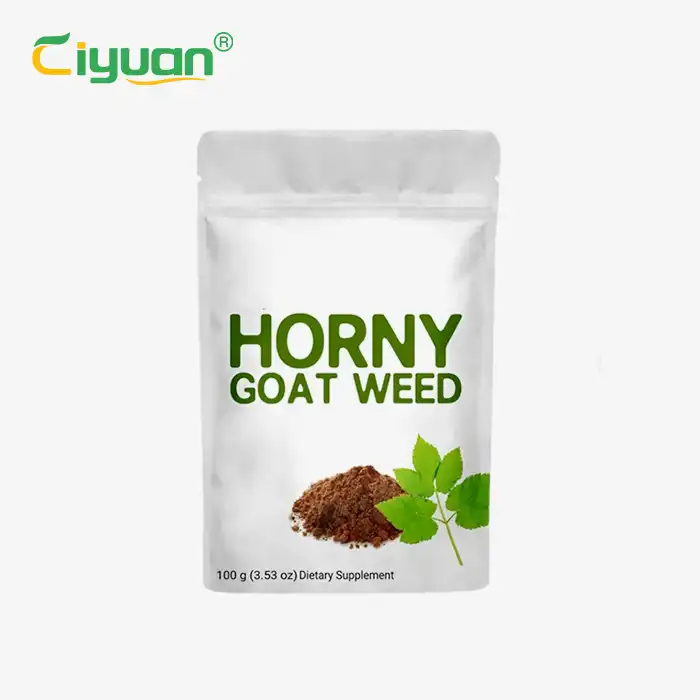
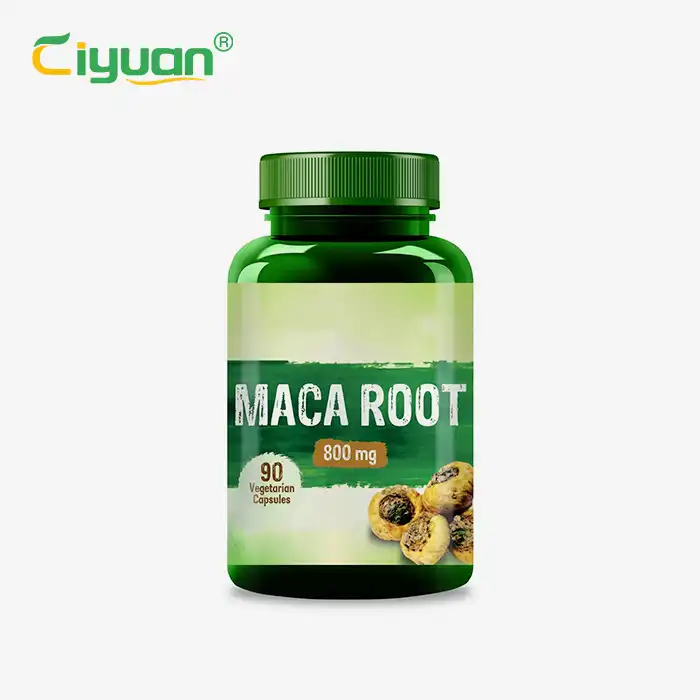
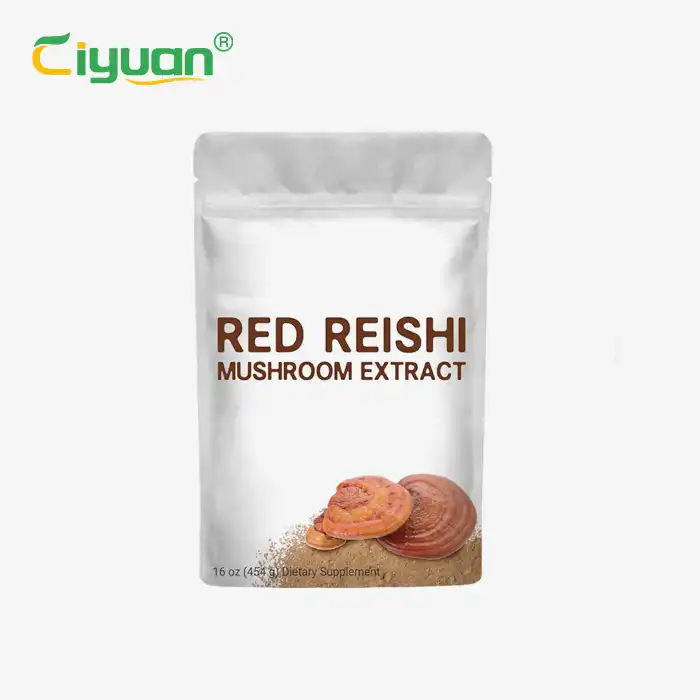





_1747818379477.webp)
_副本_1750837065051.webp)
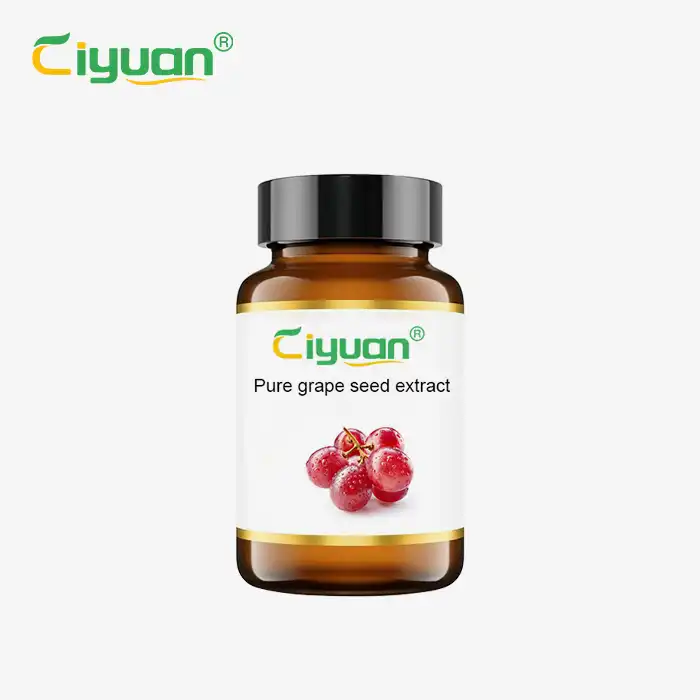
_1747213407938.webp)
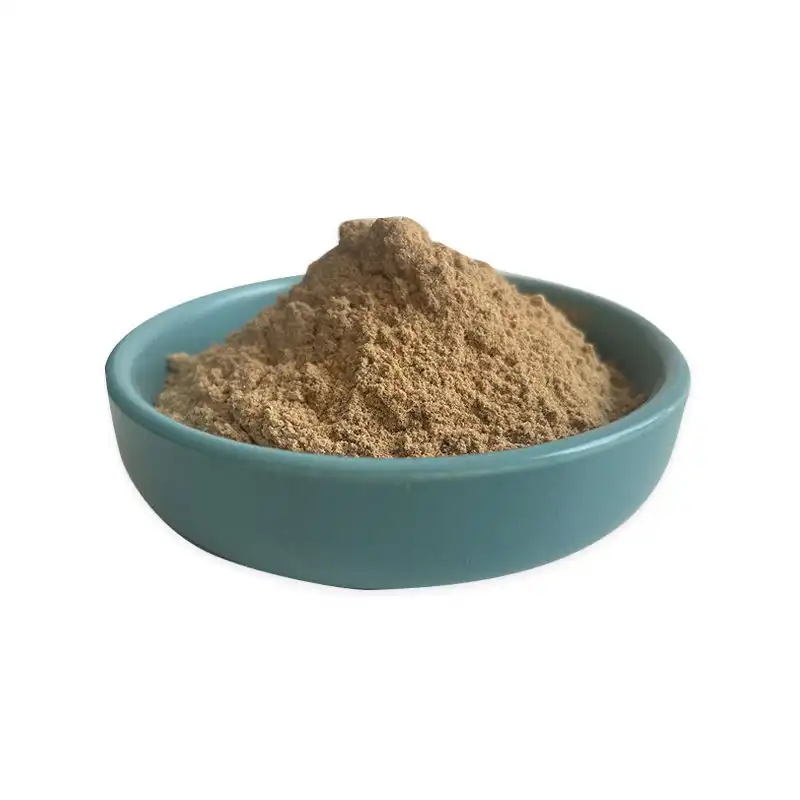
_1753774337322.webp)
_1754550693220.webp)
